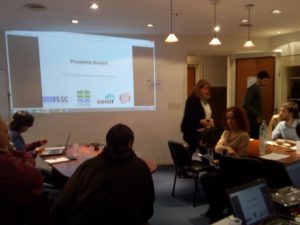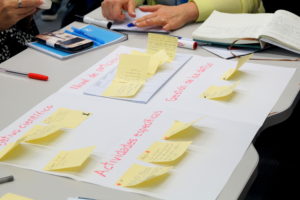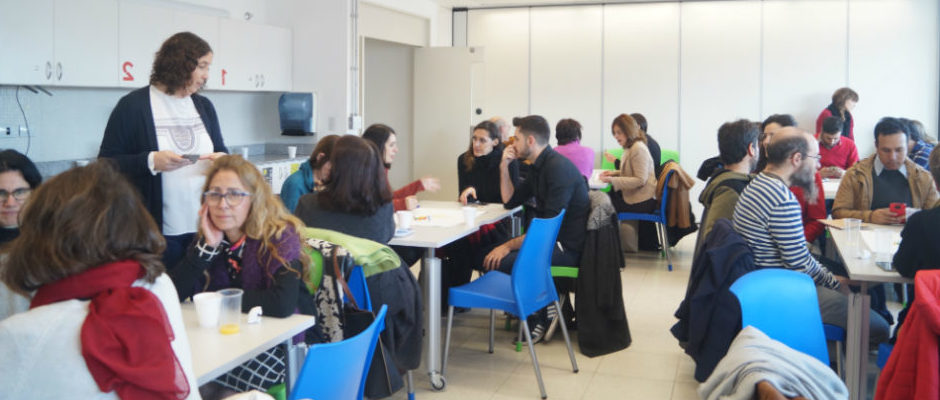Over the last decade, radically open and collaborative forms of producing knowledge and material artifacts have been gaining ground, accelerated by the advance of new technologies. Researchers from STEPS Latin America and CENIT (Research Center for Transformation), amongst many others, have been analyzing and contributing to initiatives that explore such alternative forms production.
So what do we mean by open and collaborative production? By ‘open’ we mean that efforts are made to share knowledge and technologies, to allow them to be improved on, used and circulated as widely as possible; whereas ‘collaborative’ refers to the inclusion of a wide variety of actors in different stages of research and production, such as hackers, artists, students or any citizen. Such practices potentially increase the efficiency and creativity of knowledge production; they can help promote different forms of participation in, and the democratization of, knowledge production, and may even help encourage alternative trajectories of social and technological development, operating outside of formal markets or hierarchical institutions. Tthe concept of open and collaborative production includes within it a variety of heterogeneous practices, which can range from open source, open software / hardware initiatives, open and citizen science movements, to open innovation in seeds, amongst others.

CENIT and STEPS Latin America are involved in a series of projects that seek to open up the production of science and technology, in areas such as seed innovation, open science, and free hardware. One initiative is a proposal to develop an open-source license for seed innovation, which we are calling Bioleft, which forms part of the ‘Pathways to sustainability’ project led by STEPS Latin America and the University of Sussex. Our project focuses on sustainability challenges in the agricultural sector, specifically the difficulties surrounding strict intellectual property, seed market concentration and seed innovation.
In the wake of rapid market concentration, beginning in the mid-1980s, the global seed market is now organized in such a way that only six companies account for more than 60% of global seed sales. This generates a range of sustainability challenges for agricultural systems, from increases in seed prices, to the reduction of diversity in seed innovation to declining agricultural biodiversity. Bioleft, a proposal for an open source seed innovation system, seeks to ensure the continuous, unhindered circulation of germplasm and its future derivatives, so that genetic material is available for further research and innovation to everyone.
Another initiative which focuses more on awareness of and teaching about open science is a series of Workshops and Conferences on Open and Citizen Science, a joint effort between CENIT, Cientópolis and the Ministry of Science and Technology in Buenos Aires. The meetings are being held once a month, from April until November of this year, and each workshop addresses a particular issue such as how to develop an open data system or how to promote innovation processes through open scientific production. The main goal of the series is to create a space for exchange and debate among researchers, scientists, students and the general public. This initiative will culminate at the end of the year with a conference on Open and Citizen Science, which will be held on November 2 at the University of San Martín (UNSAM).

Our researchers are also involved in open and collaborative production in other areas. For example, some researchers are developing training and discussion activities that involve open science in non-academic environments. The ‘Studies Circle’ is a community initiative that involves activists and researchers from the R’lyeh Hacklab, CENIT and IDAES/UNSAM. There, community and environmental leaders discuss the advantages and challenges of co-production of knowledge combining sensors and the ethics of free software. During the initial meetings, two community science projects, ÉTER and Vuela, were taken as a starting point. ÉTER measures the quality of air using open monitors, oriented to open technologies, while the Chilean project Vuela seeks to develop a toolkit to make open science with drone, accessible to marginal communities and useful for studies or surveys.
All of these practices combine openness and collaboration in knowledge production because they are based on enhancing participation, an absence of proprietary rules, and because they seek to develop tools that involve communities in production and use. Both CENIT and STEPS Latin America aspire to become centers of reference for open and collaborative forms of production that promise, neither more nor less, to transform ways of developing knowledge. Is that possible?
